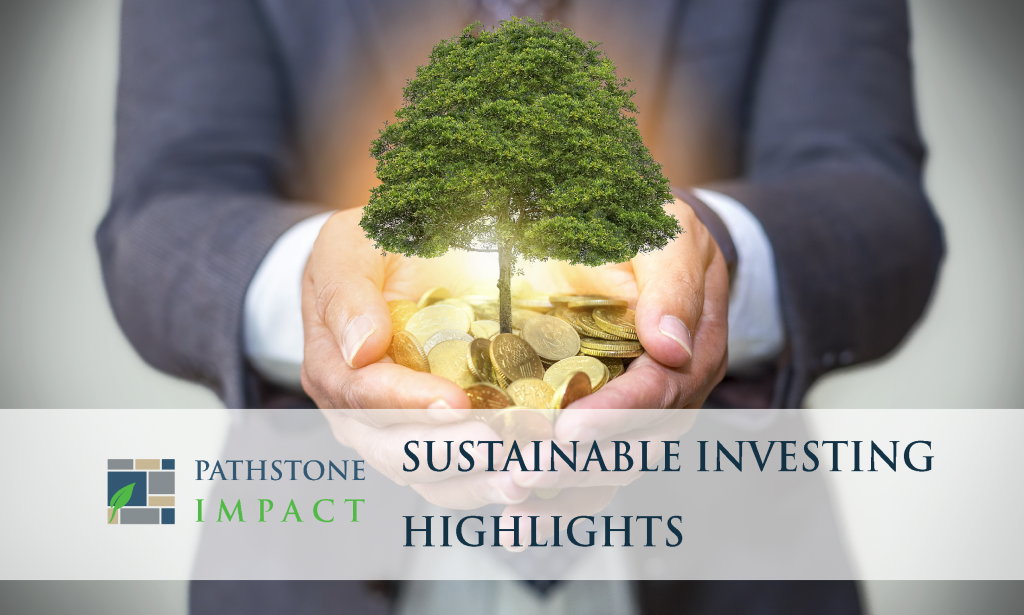The Near Certainty of Stranded Assets Along the Path to Net Zero
The path towards net zero is not farfetched, as emissions and greenhouse gases emitted by energy and utility companies continue to generate concerns. As an increasing number of global companies and government organizations adopt plans to move to net zero, asset managers with exposure to the fossil fuel industry are increasingly focused on reviewing their portfolio assets to determine which assets might be “stranded” in the next two decades. The fossil fuel industry is suffering from pricing pressure, weak oil demand linked to the lockdown of 2020, a growing transition to renewable energy from solar and wind, stricter government policies, changes in consumer behavior that includes rising demand for electric vehicles, and the growing list of businesses that are pledging to achieve a net-zero emissions goal.
Energy use is an indispensable resource for economic activities. However, this vital resource has been significantly impacted by the lockdown of 2020, triggered by a novel coronavirus pandemic. So far, energy demand has continued to experience a sharp drop as the lockdown rages worldwide. A recent report by the BP, a major player in the oil and gas sector, cites that “the oil consumption may never return to where it was before the lockdown of 2020, a lockdown that has challenged the future of oil supremacy.” The report also reinforces BP’s recent pledge to cut oil output and transition towards alternative sources of energy. By pledging to cut oil output, BP has become the first major energy company to lead the way towards net-zero energy production and consumption by 2050.
The gradual transition from fossil fuel to alternative energy such as renewable energy technologies (e.g., solar and wind) is another factor that has brought stranded assets to their near end. The mid-21st century global economy has continued to shift from coal and oil, which has dominated the world energy consumption since the first industrial revolution, to gas and renewable energy. This transition is linked to the growing demand for alternative energy sources, as climate change continues to pose existential threats and risks to humanity, businesses, and the economy. For instance, “the world’s greater reliance on clean energy means renewables could grow from 5% of the world’s energy use today to somewhere between 20% and 60% by 2050.”
Since the wake of the lockdown of 2020, governments worldwide have begun to debate stricter energy policies while at the same time reassessing the adverse impact of emissions that stem from fossil fuels, both in terms of climate change as well as air and water quality. Governments are increasingly debating policies that would leap-frog their countries to a net-zero economy. For instance, while planning a path to post-lockdown of 2020, in July, the European Union government passed a recovery fund capturing €225 billion as part of a goal to accelerate the speedy transition from a fossil fuel-driven economy to a greener economy. The €225 billion has been issued in the form of a Green Bond that would fund green projects such as solar. On a similar note, the State of California recently became the first state in the United States to order state regulators to phase out the internal combustion engine and ban the sale of gasoline-fueled cars after 2035. The impact of the ban will further reduce the dependence on fossil fuels, arguably leading to stranded assets (such as exploration equipment, refineries, and fuel distribution infrastructure) across the energy industry.
Consumer behavioral changes during the lockdown of 2020 are another factor that has heightened the likelihood of stranded assets. Global air, road, and rail travel have declined significantly as governments worldwide work to limit the novel coronavirus’s spread. According to the International Energy Agency (“IEA”), in 2020, oil demand is expected to fall by “8.4 million barrels per day compared with last year ― a record drop.” This drop is significantly linked to consumer behavior, which has dramatically reduced long-term oil demand by 2.5 million barrels per day.
The list of businesses pledging and setting goals to become net zero has continued to grow as greenhouse gas emissions remain a significant concern in a world experiencing climate change. Airbus is the latest example of a company pledging to become net zero by 2050. In a quest to lower greenhouse gas emissions within the aviation sector by 50%, Airbus has released a detailed plan to launch three hydrogen-powered planes. The three planes would enter service by 2035. According to Airbus CEO, “the use of hydrogen ― both in synthetic fuels and as a primary power source for commercial aircraft ― has the potential to reduce aviation’s climate impact significantly.”
Tribute to Ruth Bader Ginsburg (“RBG”) – A Fighter who Gave Women Equal Financial Tools under the Law
The passing of Ruth Bader Ginsburg, the former Associate Justice of the Supreme Court of the United States, has resulted in tributes from leaders from all walks of life. Justice Ginsburg, who is popularly known as RBG, will be remembered for her service on the highest court of the land, her fight for equality, and as someone who shattered glass ceilings. Justice Ginsburg was 87 years old when she passed away on September 18th, 2020, from the complications of metastatic cancer of the pancreas. Until her death, RBG served the Supreme Court for almost three decades and used her intellect, her pen, and her voice to elevate women. RBG’s important work helped ensure that women would have access to crucial savings, investments, and income, thus helping to reduce the gender gap.
Her work as an attorney in the 1970s helped shape how the United States Supreme Court approaches women’s rights, decades before she was appointed to the highest court in 1993. Before her career as an attorney, Justice Ginsburg faced a series of discriminatory actions for being a woman. At Harvard Law School in 1956, Ginsburg and her female cohorts were asked by the dean why they were occupying seats that would otherwise be filled by men. Despite her academic excellence in law from both Harvard and the Columbia Law School, Ginsburg was rejected for the clerkship position with Supreme Court Justice Felix Frankfurter. Frankfurter rejected Ginsburg because he was not ready to hire a woman. Instead of working within the court system, Ginsburg decided to work in academia as a faculty member of Rutgers Law School in 1963 and was at a clear financial disadvantage just because she was a woman. Upon discovering that her salary was lower than that of her male colleagues, Ginsburg decided to join an equal pay campaign with other women teaching at Rutgers.
Ginsburg and her colleagues were able to have their salary increased. As Ginsburg continued to experience gender-based discrimination, her passion for equality was heightened. In one case representing a widower, Weinberger v. Wiesenfeld (1975), Ginsburg challenged a Social Security Act that denied Wiesenfeld equal protection under the law. Wiesenfeld, “whose wife died giving birth to their son, was denied these benefits even though she had to endure all the demands and difficulties of raising a child alone. Ginsburg won her case before the highest court in the land, a court she would later join as a justice, as the court ruled that sex-based discrimination was unconstitutional.
In another landmark case, Califano v. Goldfarb, Ginsburg challenged a sex-based provision within Social Security regulations that prevented survivors from claiming their late husband’s benefits, unless the widows could prove that their late husbands were financially dependent on their living wife. The highest court ruled in favor of Ginsburg in the case, on the basis that the Social Security administration’s approach violated the equal protection act. Ginsburg was instrumental in breaking down barriers that prevented women from having access to savings and investment, which often prevented women from returning to work after pregnancy.
For many late, Ginsburg would be remembered as someone who insisted that “the Constitution deliver on its promise, that we the people would include all the people.” Tributes from both sides of the aisle remembered Ginsburg as fearless. According to Retired Justice Anthony Kennedy, “In our court sessions and conferences, Ruth was remarkably well prepared for every case, down to the smallest detail. If the two of us disagreed, it was always in a civil, principled, respectful way. By her learning, she taught devotion to the law. By her dignity, she taught respect for others and her love for America. By her reverence for the Constitution, she taught us to preserve it to secure our freedom.”
Shareholder Engagement as a Powerful ESG Lens
As the 2020 proxy season began, more companies must pay close attention to environmental, social, and governance (“ESG”) related issues resulting from their engagement with their shareholders. Shareholder engagement has continued to generate momentum as a tool used by investors to influence publicly-traded company policy and corporate decision-making while encouraging them to enhance their triple bottom line of people, planet, and profit. Investors have used this tool to raise their concerns on corporate governance issues, climate change, diversity and gender equity, and executive compensation. Investors often raise questions regarding gender diversity on companies’ quarterly earnings calls and put forward resolutions to be considered during their annual general meetings. Shareholder engagement can also take the form of one-on-one meetings with a representative of a portfolio manager to discuss the companies in which they invest. It reflects a new era in corporate governance, one that is rooted in the notion of holding corporate accountability and transparency and promotes the dialogue with a broad range of stakeholders, including employees, suppliers, customers, and investors.
Today’s shareholders are consistently looking for the assurance that companies are being managed responsibly. For so long, shareholders have been looking for evidence that the board of directors and company management are rewarding good performance appropriately and not the other way around. For instance, during the lockdown of 2020, corporate boards have faced challenging decisions, making it difficult for companies to cut corners while addressing environmental, social, and governance (“ESG”) issues that remain of interest to many investors. Considering growing shareholder engagement, during the September 20, 2020, annual meeting, Telsa shareholders pressed for accountability by challenging “the electric vehicle manufacturer employee arbitration policy and its human rights guidelines.” Telsa shareholder’s demands come at a time when the “widespread use of forced arbitration has come under fire since the #MeToo movement exposed it as a tool that effectively keeps harassment complaints quiet.”
Shareholders and human rights groups have continued to clamor for more transparency on how corporate organization conducts their business. In the wake of rising human rights controversies, shareholders have used transparency to press companies to disclose information or data related to how they are handling issues such as diversity and inclusion, human rights’ controversies, climate risk, and board governance. In a quest to broaden transparency and repair damage linked to a human rights controversy involving its supplier in China, Apple, the tech giant, launched its first-ever “supplier code of conduct” aimed at improving workers’ rights within its supply chain. Apple’s supplier code of conduct cites that “all workers in Apple’s supply chain “deserve a fair and ethical workplace.” It prohibits harassment and abuse and specifies a 60-hour maximum workweek, as well as at least one day off per week, among other protections.”
The current social and economic environment has spotlighted businesses’ need to address their diversity gap. This is coming as shareholders continue to engage with asset managers and companies to request that companies disclose their overall workforce demographic data through the Equal Employment Opportunity data (“EEO-1”).
For instance, on July 1st, 2020, Scott M. Stringer, the New York City Comptroller, sent a letter to companies on behalf of the New York City Employees’ Retirement System, Teachers Retirement System of the City of New York, and New York City Board of Education Retirement System. These retirement plans have a collective $150 billion in assets invested in these S&P 100 companies operating in New York. The letter requested more data disclosure regarding the diversity of their workforces reflected in EEO-1 data. Thus far, 34 of the S&P 100 Companies have begun disclosing their data or committed to disclosing their EEO-1 data. This resulted from shareholder engagement backed by growing concern by activists for diversity and inclusion.
Pathstone’s clients are able to participate in shareholder engagement through the investment managers within their portfolios. Many managers have engagement strategies that push companies to be more environmentally and socially responsible. Pathstone also maximizes impact through its partnership with As You Sow. As You Sow is an organization that specializes in shareholder engagement on ESG issues. For more information on shareholder engagement of recommended managers or opportunities for engagement through As You Sow, we encourage you to reach out to your Pathstone advisor.
New ESG Standards and Stakeholder Capitalism
As the world continues to wrestle with the ongoing lockdown of 2020, businesses’ CEOs, policymakers, and the Big Four accounting firms have raised the need to rethink ESG reporting metrics while tilting towards stakeholder capitalism, one that takes into account the interest of employees, environment, local communities, and shareholders. On a video conference call with Klaus Schwab, the Founder and CEO of the World Economic Forum, Brian Moynihan, CEO of Bank of America, and Carmine Di Sibio, CEO of EY, shared their perspectives on ESG reporting standards, which might help foster an era of shareholder capitalism.
According to Schwab, “environmental, social, and governance standards (ESGs) will be the next step in driving stakeholder capitalism: the notion that a company is responsible to all its stakeholders, including its employees, customers, and the environment. ESGs and stakeholder capitalism are not a fad. It’s not a manifestation of business leaders to showcase their corporate social responsibility. ESGs are an integral part of business management.”
Meanwhile, the Big Four accounting firms ― Deloitte, PwC, EY, and KPMG ― in conjunction with the World Economic Forum, have endorsed new ESG reporting standards that would help companies assess their compliance to a set of metrics and reports. The new reporting standards would comprise 21 core metrics and 34 supplements to support the core metrics. Each core metrics falls within four categories: climate, governance, prosperity, and people. In support of the newly endorsed ESG metrics, “companies will be able to broaden their engagement with their stakeholders, […], sustainable value creation and prioritize the needs of people and planet and the creation of broad-based economic prosperity,” Says Carmine Di Sibio, CEO of EY.
Click to view a PDF version of the Sustainable Investing Highlights – October 2020.




















